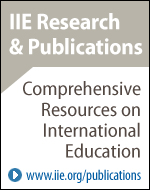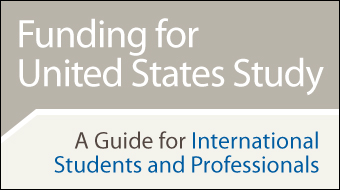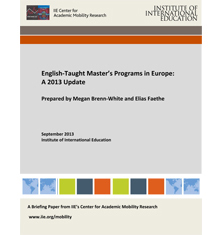
October 29, 2013
|
IIE Home | Membership | Publications | Open Doors | Contact Us | Subscribe |
A new briefing paper published by IIE's Center for Academic Mobility Research suggests that the number of English-taught Master's Programs in Europe has increased significantly since 2011. The paper, English-Taught Master’s Programs in Europe: A 2013 Update, is an update of a report published by IIE in June 2011, and provides a data-driven look at the continued growth of master’s programs in Europe taught entirely or partially in English.
In recent years, European countries in which English is not the primary language of instruction have developed an increasing number of programs taught either fully or partly in English in order to serve domestic demand for higher education in English and to attract students from around the world. The authors, Megan Brenn-White and Elias Faethe, examine statistics that they have obtained from MastersPortal.eu, an online directory and comprehensive source of information about postgraduate degree programs in Europe. The authors examine the growth of English-taught master’s programs in Europe, including the total number of programs offered by country and academic discipline, their duration, and data on prospective students.
According to the report, as of June 2013 the total number of English-taught programs in Europe was 6,609, a 42 percent increase since 2011. The top host countries for English-taught Master's programs are: Netherlands, Germany, Sweden, France, and Spain.
Daniel Obst, Deputy Vice President of International Partnerships, writes about where international education is headed based on articles in the Fall 2013 edition of the IIENetworker magazine. "The authors of the 15 articles in this issue of IIENetworker provide some truly thought-provoking ideas. The most interesting part, for me at least, was that their predictions for the next big thing are not necessarily futuristic new technologies, but rather revolve around the way we conduct our core business of engaging globally: integrated stakeholder engagement; global research collaboration; developing a global option for the curriculum; designing a truly global university," writes Obst in IIE’s Opening Minds blog.
The Institute of International Education (IIE) has launched a groundbreaking 10-year, longitudinal study designed to explore and analyze the impact of the Ford Foundation International Fellowships Program (IFP) on its more than 4,300 alumni from 22 countries.
The study offers a rare opportunity to explore over the long term how an innovative higher education program affected the lives of its beneficiaries and the communities in which they live and work, and to examine whether it shifted the picture of equity and access in developing countries and within underserved populations.
"As governments everywhere search for ways to educate and tap the talent of more citizens, the International Fellowships Program offers practical, real-world lessons, especially in helping people from rural and marginalized communities find a place in higher education," said Darren Walker, president of the Ford Foundation. "This landmark study ensures that a body of knowledge and experience built over many years can continue to help open the door to higher education for millions of hard-working people throughout the world."
For over a decade, the Ford Foundation International Fellowships Program, which was housed at IIE, enabled emerging social justice leaders from marginalized communities around the world to pursue advanced degrees at more than 600 universities in nearly 50 countries. IFP was initiated in 2001 with funding from the Ford Foundation through the single largest grant ($340 million) in the Foundation’s history. The study will be conducted by IIE’s Center for Academic Mobility Research.
|
www.iie.org/iienetwork • Member website of the Institute of International Education
© 2024 Institute of International Education. All rights reserved.
© 2024 Institute of International Education. All rights reserved.




